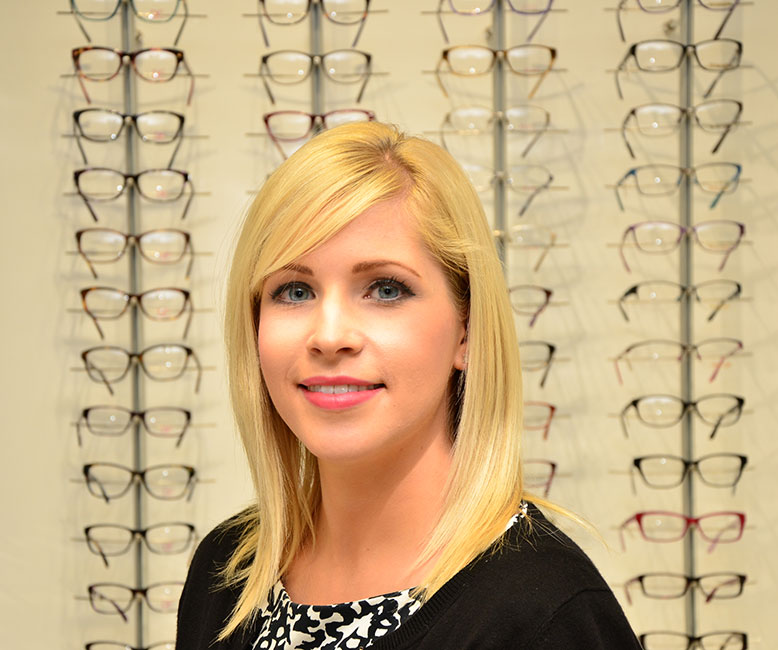- OT
- Life in practice
- Business management
- Dedicated to domiciliary
The challenge
Dedicated to domiciliary
OT speaks to practices about the patient, practitioner and business benefits that domiciliary care can bring

12 June 2017
Public awareness around domiciliary eye care is currently limited, admits optometrist Christopher Gould, who runs his own domiciliary business in Wales. “My patients and their carers are always saying that they didn’t know that they could have an eye test at home,” he told OT .
With the UK’s ageing population ever-growing, awareness levels, or lack of, need to be addressed because “there are so many people out there who could benefit from a domiciliary eye test,” he said.
An optometrist with more than three decades experience in the sector, Mr Gould spent the first 20 years of his career in practice as a joint venture partner. In search of something both more satisfying and challenging, 12 years ago the optometrist left the High Street and established his own domiciliary business, Home Vision Care. Today, Mr Gould offers domiciliary care to patients across Denbighshire, Conwy, Gwynedd and Ynys Mon in Wales.
Operating out of a van, Mr Gould admits that it was “tough at times,” when he first established the business. “With public awareness about domiciliary sight tests low, initially I advertised the service in local papers and via leaflet drops, but this wasn’t very fruitful,” he shared.
The optometrist found that locuming in practices that did not offer domiciliary care helped to get the wheels of his business in motion. “I would locum in a range of High Street practices and take referrals for any domiciliary enquires that came in that they couldn’t deal with,” he shared.
Mr Gould has also found that establishing good relationships with visual impairment teams from social services, as well as eye clinic liaison officers (ECLOS), keeps him on the road full-time. These referrals are pivotal to business as Mr Gould loses 40% of his patients every year to the “grim reaper.”

Advice to others
With eye examinations taking around one hour, and with meal times ring-fenced as carers’ time, Mr Gould’s testing day revolves around 10am–1pm and 2–5pm, after which he returns home and completes the necessary paperwork – “low vision reports, referrals and NHS paperwork normally keeps me busy for another two hours in the evening,” he said.
When discussing a “typical day,” Mr Gould emphasises that planning is very important. “My journey has to be planned very carefully in order for me to get the visits in the right order so that I’m not going backwards and forwards,” he said.
Logistics is key Mr Gould said, adding that he has found that calling the patient 15 minutes before he expects to arrive particularly helpful. “In my experience people who are housebound can be anxious at times, especially if you are even just a few minutes early or late. I have found it very useful to call ahead and let them know that I’m close by as it gives them time to get ready,” he said.
When on the road, Mr Gould must have everything that he may need on him – from sight testing tools to spectacles.
Mr Gould strongly disagrees with the view that domiciliary eye exams are not of the same quality as those offered in the practice setting, Mr Gould disagrees strongly. “One should aspire to provide an eye exam that is of the same quality as what the patient would receive on the High Street, and the equipment I have reflects that,” he emphasises. The recent investment in a Zeiss portable retinal camera by the domiciliary optometrist allows his eye exams to be completely comparable, he said.
Although Mr Gould opted to establish a full-time domiciliary business, he encourages independent opticians to offer domiciliary eye care due to the benefits that it brings to patients and businesses.
"One should aspire to provide an eye exam that is of the same quality as what the patient would receive on the High Street, and the equipment I have reflects that"
Extending the independent
Having offered a domiciliary service to its patients since it opened its doors in Leicestershire in 1986, independent opticians Edmonds & Slatter has recently made a concerted effort to advertise and expand the service.
As a business that has been open for almost 30 years, domiciliary clinic manager at Edmonds & Slatter, Amy Coleburne, explained: “We wanted to re-prioritise the service within the business, acknowledging that many of our patients have been with us a long time now and their needs have changed too.”
“In recent years we have seen a drop-off in our long serving patients at a particular point, when it was likely they had begun to find it too difficult to attend the practice. We wanted to do something about it,” she continued.
The re-fresh and re-launch of its domiciliary offering across its three practices around south Leicestershire is their direct response.
Operating the service at a company-wide level – staff across all practices are part of the service that operates on one rota – enables the flexibility that the independent knows its patients need. “While we operate regular domiciliary clinic times, using staff from all practices means that we can respond to patient demand when required,” highlighted Ms Coleburne.
Having reviewed its procedures to ensure that every aspect was portable, the next step was advertising the service to make the local community aware. “We thought outside of the box when it came to spreading the word and put ourselves in the shoes of the people that we wanted to reach,” Edmonds & Slatter business development manager, Jess Slatter (pictured below), told OT. “Consequently, we sent information to GPs surgeries, the Citizens Advice Bureau and a number of elderly care groups in the area.”
This approach, Ms Slatter said, has worked, and initial uptake has been positive.

Job satisfaction
When Mr Gould pursued a career change, he was looking for something more rewarding than what “being stuck in a little room all day,” offered him, and he found just that.
“I find what I do hugely satisfying,” he shared. “When I left the High Street 12 years ago, I thought that I’d do domiciliary work for a few years and then perhaps take an early retirement. However, within a year, business was blooming and I found myself working full-time again and really enjoying it.”
Employees at Edmonds & Slatter concur, Ms Coleburne confirmed, adding that staff have welcomed the new avenue of work.
“Our practitioners have embraced the challenge of working in a different environment and the variety that it brings to their day. They get great satisfaction from looking after their patients and meeting their needs. And when the time comes when someone may find it difficult to attend the practice, the last thing they want is to be unable to help them anymore. And now they don’t have to.
Image credit: Getty
Advertisement


Comments (0)
You must be logged in to join the discussion. Log in